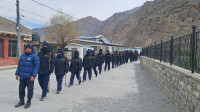Politics
19 political events of 2019
Major happenings of the year put the ruling Communist Party at the centre of attention, often exposing the limitations of even an all-powerful government.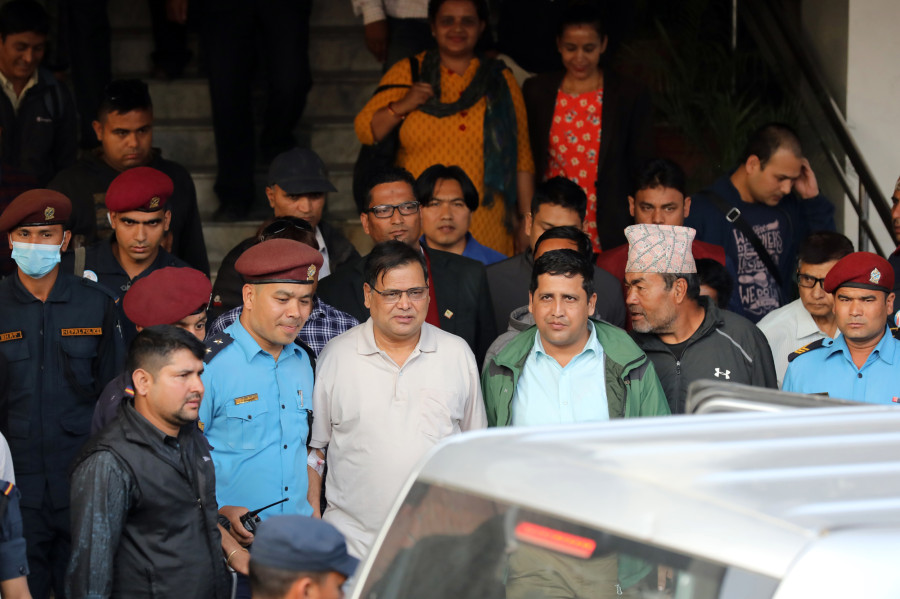
Tika R Pradhan
2019 was a politically eventful year. While the ruling Nepal Communist Party continued to struggle to conclude its unification process, the primary opposition Nepali Congress was embroiled in its intra-party feud. The year also saw the merger of Sanghiya Samajbadi Forum and Naya Shakti to form the Samajbadi Party Nepal. The ruling party’s love-hate relationship with Rastriya Janata Party Nepal and the Samajbadi Party Nepal brought some changes in political dynamics. Krishna Bahadur Mahara lost his Speaker post. There was a visit at the highest level from the northern neighbour. Prime Minister KP Sharma Oli’s health drew quite some attention in the last quarter of the year.
Here are the major political events of 2019:
Resham Chaudhary
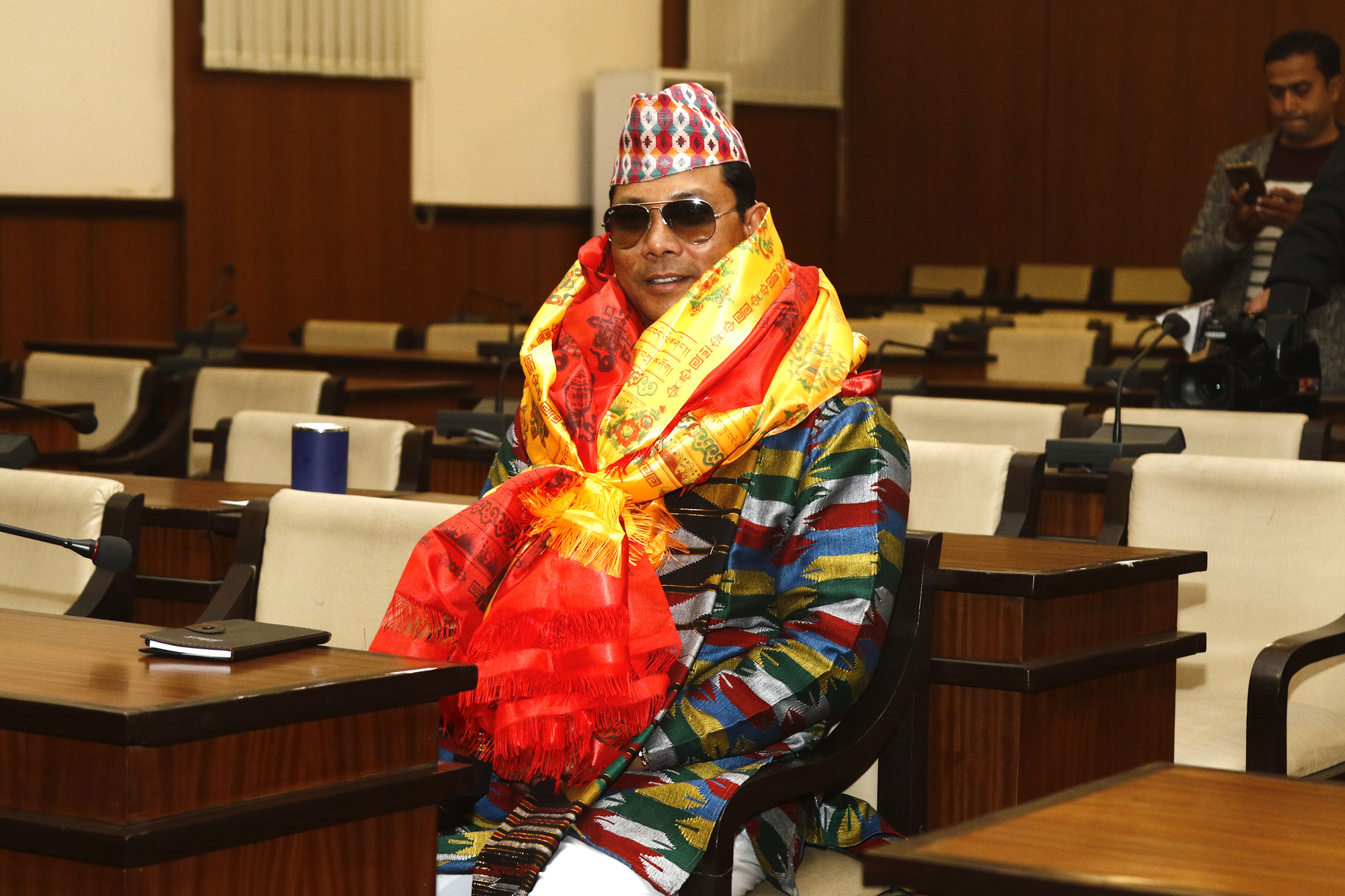
Rastriya Janata Party leader Resham Chaudhary, who was elected from Kailali-2 constituency with more than double the votes of his closest rival, was in the spotlight for his alleged involvement in the 2015 Kailali incident in which nine people were killed in a violent clash. He was in Kailali jail waiting for the court’s verdict and was later brought to Kathmandu. While his trial was ongoing, Chaudhary was suddenly brought to Singhadurbar on January 3, where then-Speaker Krishna Bahadur Mahara administered him the oath of office and secrecy as lawmaker.
But the joy of becoming a lawmaker did not last long. On March 6, the Kailali District Court handed down a life sentence to 11 people including Chaudhary, in connection with the Tikapur carnage.
Death of Rabindra Adhikari
01042019.jpg)
A popular youth leader of the Nepal Communist Party, who led the Ministry of Tourism, Culture and Civil Aviation, died in a helicopter crash on February 27 in Pathivara of Taplejung district. His death was mourned by the country as the loss of a promising leader. In the vote for the parliamentary seat vacated by his death, the ruling party fielded his spouse Bidya Bhattarai. Bhattarai used to be a politician but later she became a lecturer just to support her politician husband. Bhattarai won the Kaski-2 seat in the November 30 by-election. She has promised to fulfil the dreams of her late husband.
CK Raut joins mainstream politics
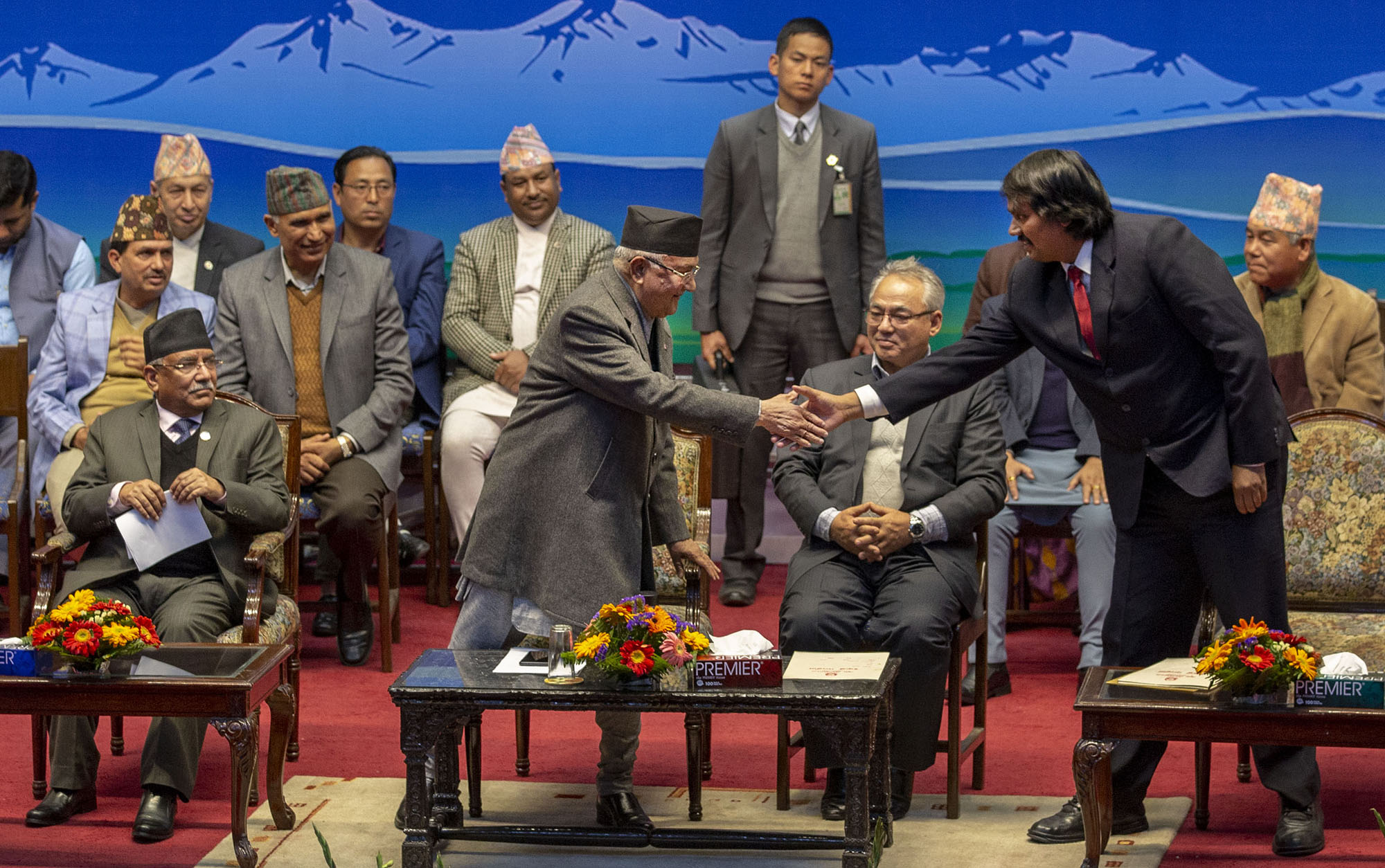
In an unprecedented move, the Free Madhes activist CK Raut, who had been demanding a separate Madhesi state for nearly a decade, reached an agreement with the KP Sharma Oli-led government on March 8.
His entry into mainstream politics was welcomed by different sections of the society. After Raut’s entry, the Netra Bikram Chand-led Communist Party of Nepal remains the only problematic force for the state.
Government bans Biplav’s party
The government led by Prime Minister KP Sharma Oli decided on March 13 to ban the activities of the Netra Bikram Chand (Biplav)-led Communist Party of Nepal. Since then security forces have arrested hundreds of leaders and cadres of the outfit.
Rastriya Janata Party withdraws support to government
The day when the Kailali district court slapped a life sentence to 11 people including Resham Chaudhary on March 6, his party —Rastriya Janata Party Nepal—decided to withdraw its support to the KP Sharma Oli-led government. Oli had more than a two-thirds majority with the then Sanghiya Samajbadi Forum Nepal having 16 lawmakers in the government. Even after the Janata Party withdrew support, Oli continued to enjoy the overwhelming majority.
But, in an unprecedented move, the Rastriya Janata Party Nepal on December 18 joined hands with the Nepal Communist Party in an alliance for the National Assembly elections for Province 2. Though Jananta Party leaders claimed that the move was limited to securing the party’s only two seats in the Assembly, there are speculations that the second point of the agreement signed with the co-chairs of the ruling party speaks volumes about further cooperation.
Unification of Naya Shakti Party and Sanghiya Samajbadi Forum
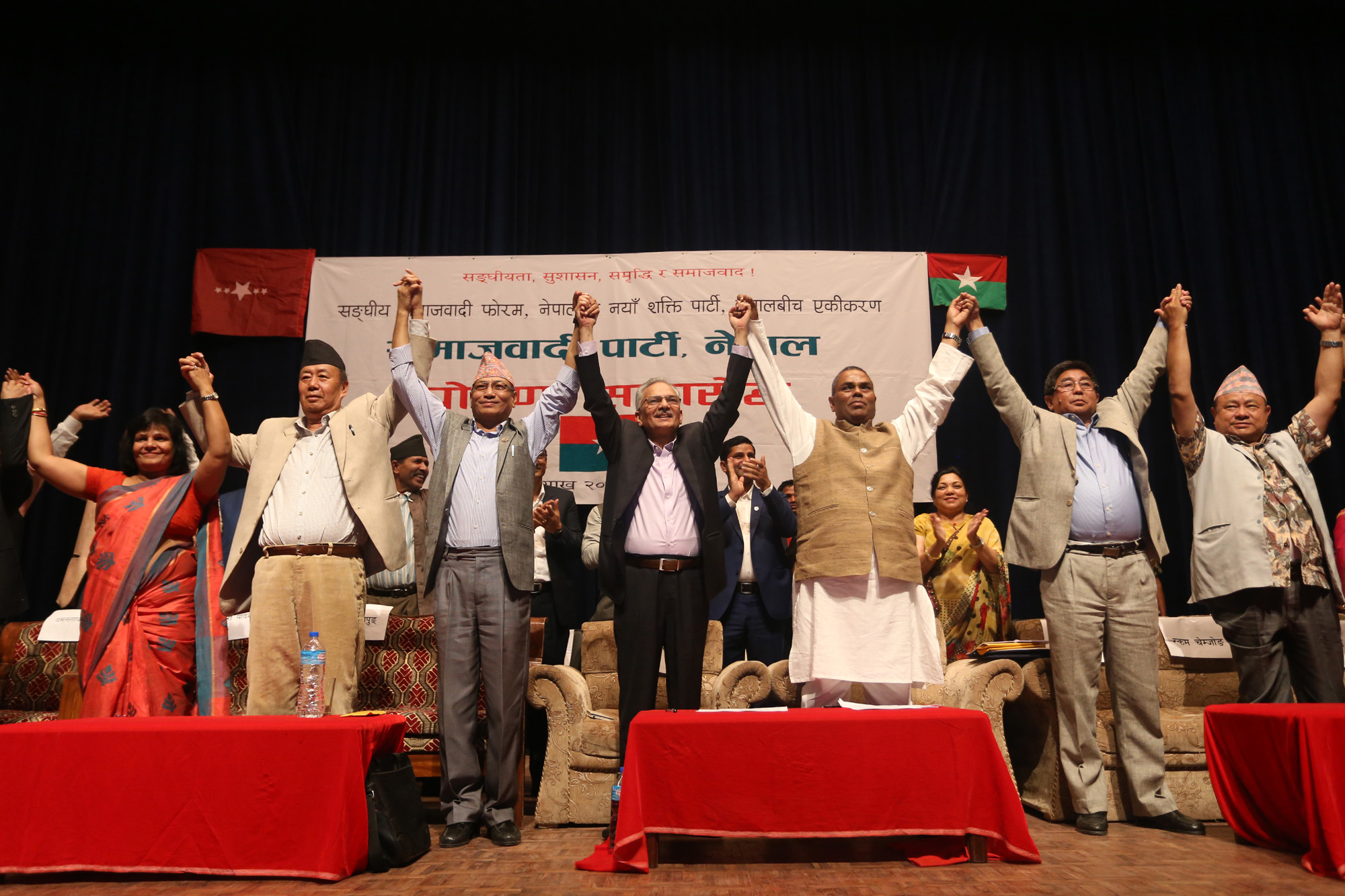
In a bid to create a strong third force which could be an alternative to Nepal’s traditional Congress, Communist and pro-monarchy forces, the Baburam Bhattarai-led Naya Shakti Party and the Upendra Yadav-led Sanghiya Samajbadi Forum Nepal merged on May 5, creating a socialist party named Samajbadi Party Nepal.
This merger created a ripple in Nepali politics after the unified party started informal dialogues for merger with the Rastriya Janata Party Nepal. But the merger process has stalled due to a conflict over the issue of leadership.
Government forced to withdraw Guthi bill fearing backlash
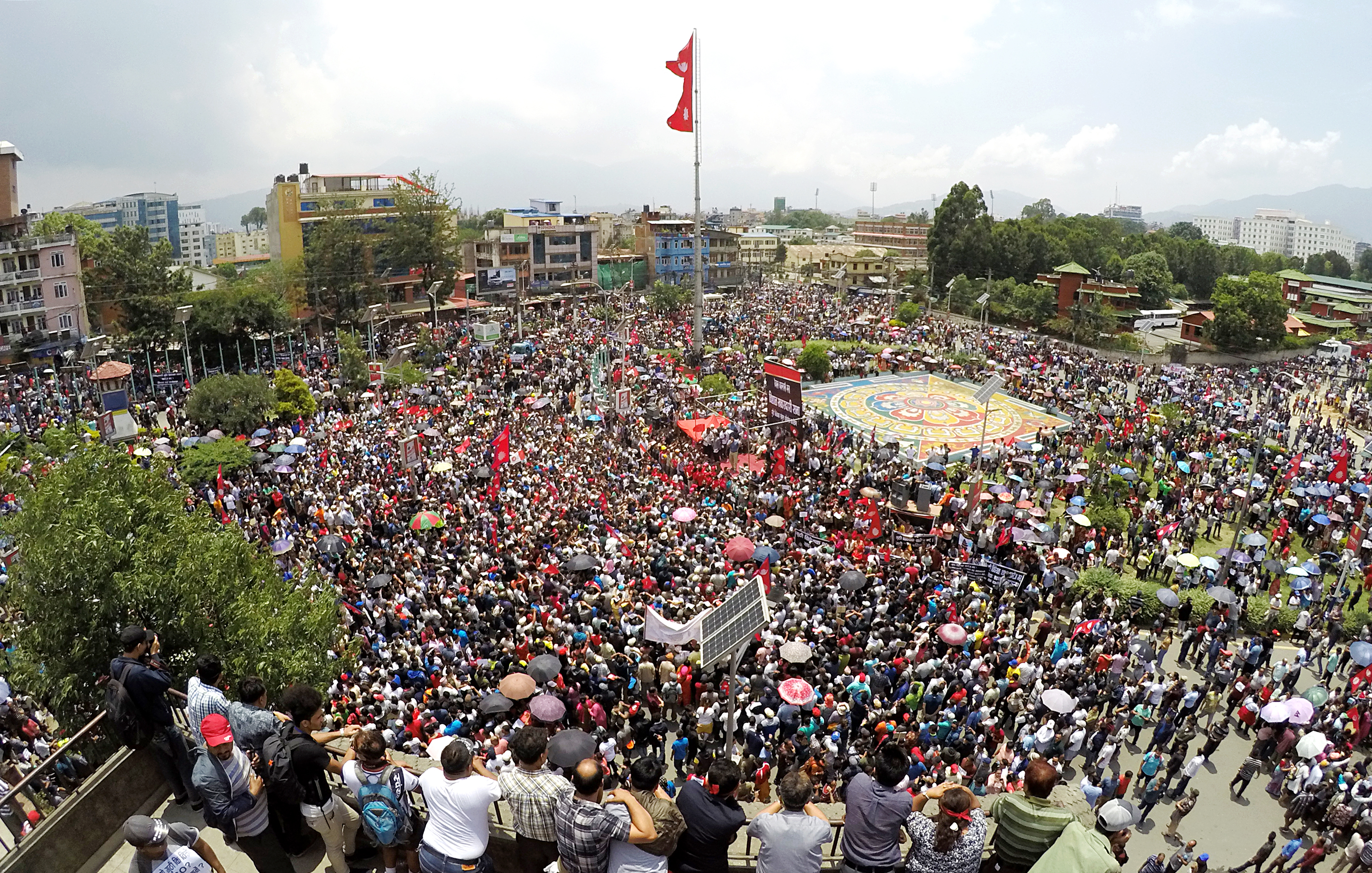
In June 18, a day before the Kathmandu Valley’s citizens were preparing for a grand protest against the government’s Guthi bill, Minister for Land Management, Cooperatives and Poverty Alleviation Padma Kumari Aryal decided to withdraw the bill. This is an example of the Oli government commanding a two-thirds majority kneeling down before the people for the first time. Issuing a statement, Minister Aryal had said the bill needed wider consultation with the stakeholders.
Prime minister’s health problem
KP Sharma Oli’s health problem has been dominating headlines ever since the prime minister received treatment in Singapore for weeks in August. Since then, Oli has been frequently visiting different hospitals in Kathmandu for kidney dialysis, hampering the proper functioning of the government and his Nepal Communist Party.
Krishna Bahadur Mahara sexual assault case
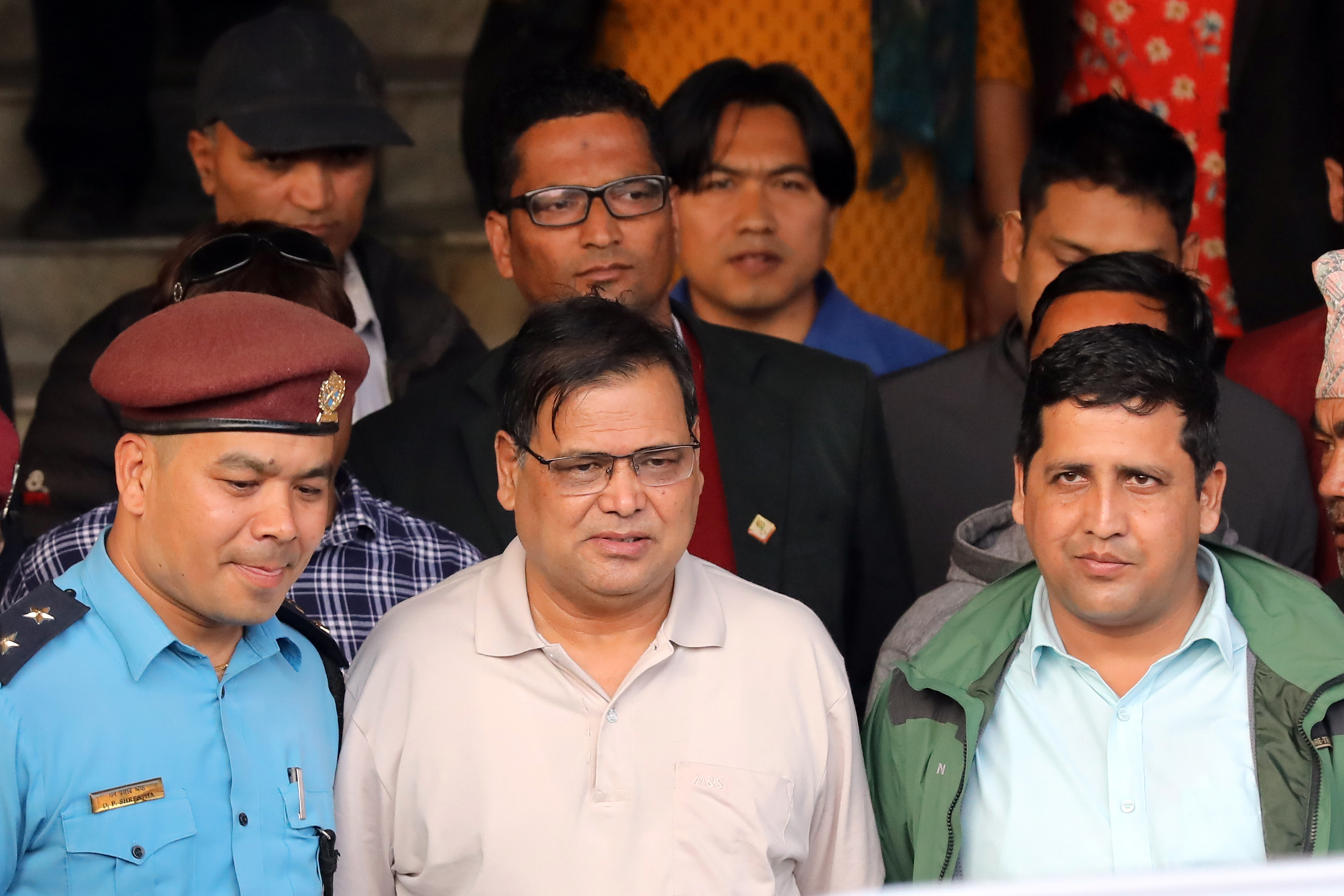
This is the first case in the recent history of Nepal where the fifth highest ranking official of the state was arrested on the charge of attempt to rape.
Speaker of the House of Representatives Mahara, who was appointed deputy prime minister three times and given various ministerial portfolios since the Maoists joined peaceful politics in 2006—was arrested on October 6 for a rape attempt on a junior officer at the Parliament Secretariat.
On November 4, the Kathmandu District Court, where his case has been prosecuted, remanded him in judicial custody. Mahara has been kept at Dillibazar Prison. His plea against the district court’s ruling was rejected by the Patan High Court on December 19.
The ruling Nepal Communist Party is preparing for the election of a new Speaker.
Xi Jinping visit
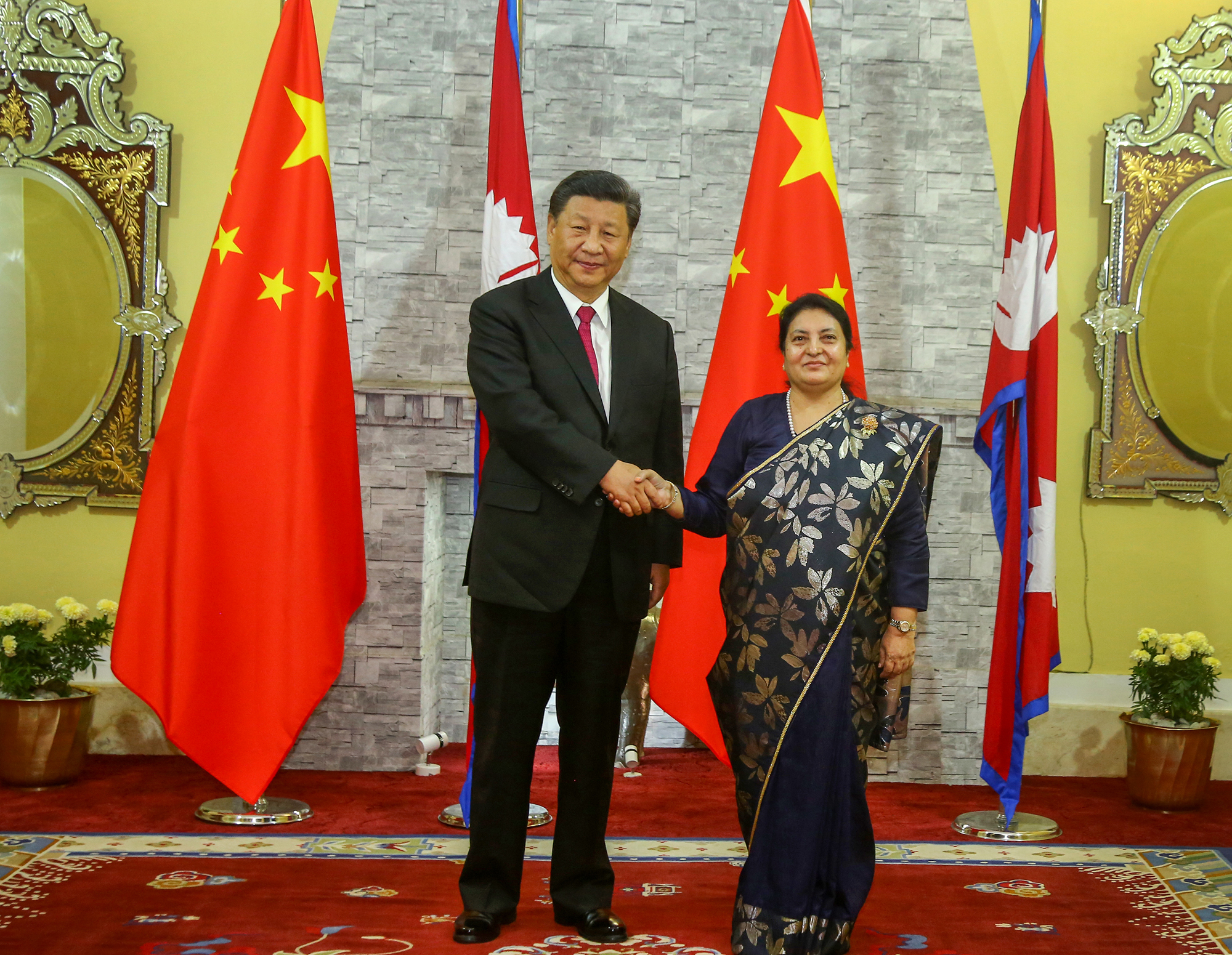
Chinese President Xi Jinping visited Nepal on October 12, helping strengthen the ever growing relations of the Himalayan country with the northern neighbour.
Aftab Alam case
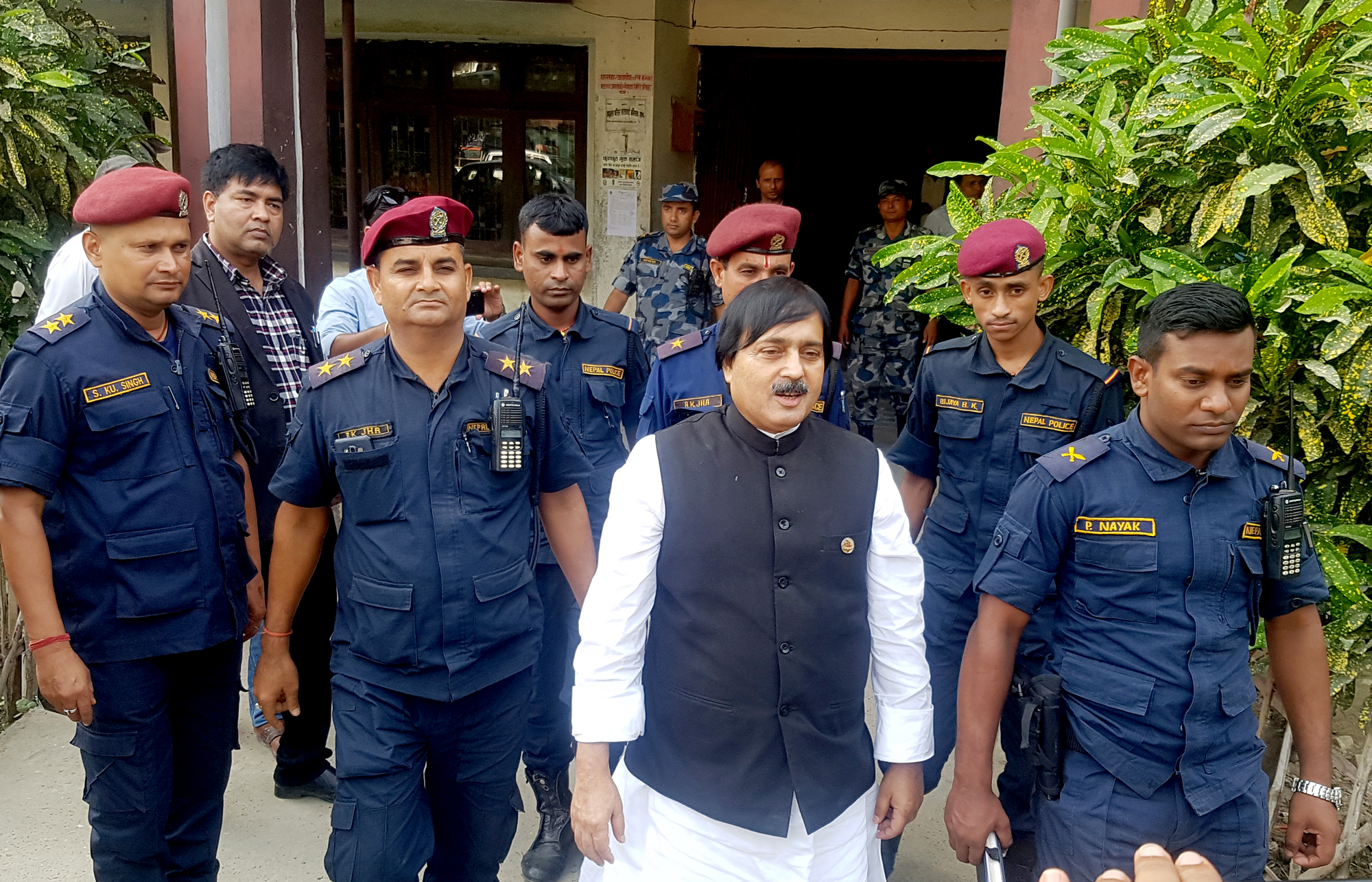
Former Nepali Congress lawmaker Mohammad Aftab Alam’s case, which had been put under wraps for more than a decade, was revived on October 13.
This revival of the case, in which a political leader, lawmaker and three-time former minister, was allegedly involved in the heinous murder of people by throwing them into a brick kiln, however, has brought some hope for the family members of the victims and the general people.
Though some leaders of the Nepali Congress including former home minister Krishna Prasad Sitaula had questioned the intention of the Nepal Communist Party-led government for reviving the case after such a long time, all quarters of society hailed the action citing the grave nature of the crime.
Cabinet Reshuffle
After a long wait, Prime Minister KP Sharma Oli reshuffled his Cabinet on November 20 kicking out ministers Matrika Yadav, Chakrapani Khanal, Tham Maya Thapa, Lalbabu Pandit, Raghubir Mahaseth and Gokarna Bista and state ministers Surendra Yadav and Ram Kumari Chaudhary.
Six new ministers were appointed—Hridayesh Tripathi as Federal Affairs and General Administration minister, Basanta Kumar Nembang as Physical Planning and Transportation; Rameshwor Raya Yadav as Labour, Employment and Social Security minister; Parbat Gurung as Women, Children and Senior Citizens minister; Lekhraj Bhatta as Industry and Commerce minister; and Ghanashyam Bhusal as Agriculture minister. Motilal Dugad, Nawaraj Rawat and Rambir Manandhar were appointed as state ministers.
Oli had swapped the ministries of Bhanubhakta Dhakal with Deputy Prime Minister Upendra Yadav.
Co-chair Dahal gets executive role in NCP
Citing that his illness has adversely affected the works of the party which he co-chairs, Prime Minister KP Sharma Oli decided to hand over the executive party role to Co-chair Pushpa Kamal Dahal on November 21. Dahal, who had demanded the responsibility ever since he decided to merge his CPN (Maoist Centre) with Oli’s CPN-UML in May last year, has been trying to play his role.
November 30 by-elections
The by-elections held on November 30 for 52 vacant positions of the three federal levels became a test of popularity for the country’s major parties. The ruling Nepal Communist Party (NCP) lost in three major places—Bhaktapur, Dharan and Chitwan, provincial seat, sub-metropolis and wards respectively—but the main opposition Nepali Congress failed to take benefits from the loss as some of the local councils governed by the Congress were snatched by the ruling party.
MCC controversy
The Millenium Challenge Corporation of the US government became a hot topic as the Standing Committee members of the ruling Nepal Communist Party claimed that the MCC was a part of Washington’s Indo-Pacific Strategy. Leaders including Bhim Rawal and Dev Gurung demanded that the government first clarify that the MCC was not a part of the IPS. They had also objected to some of the provisions of the MCC compact claiming that such provisions would undermine Nepal’s sovereignty.
Turmoil within main opposition party
The Nepali Congress was expected to play the role of a vibrant opposition owing to its long experience in running government but the party failed. Instead the oldest party of the country remained busy in internal turmoil. The party has failed to hold its general convention. Interestingly the two factions in the party formed talks teams to resolve impending issues within.
Border dispute
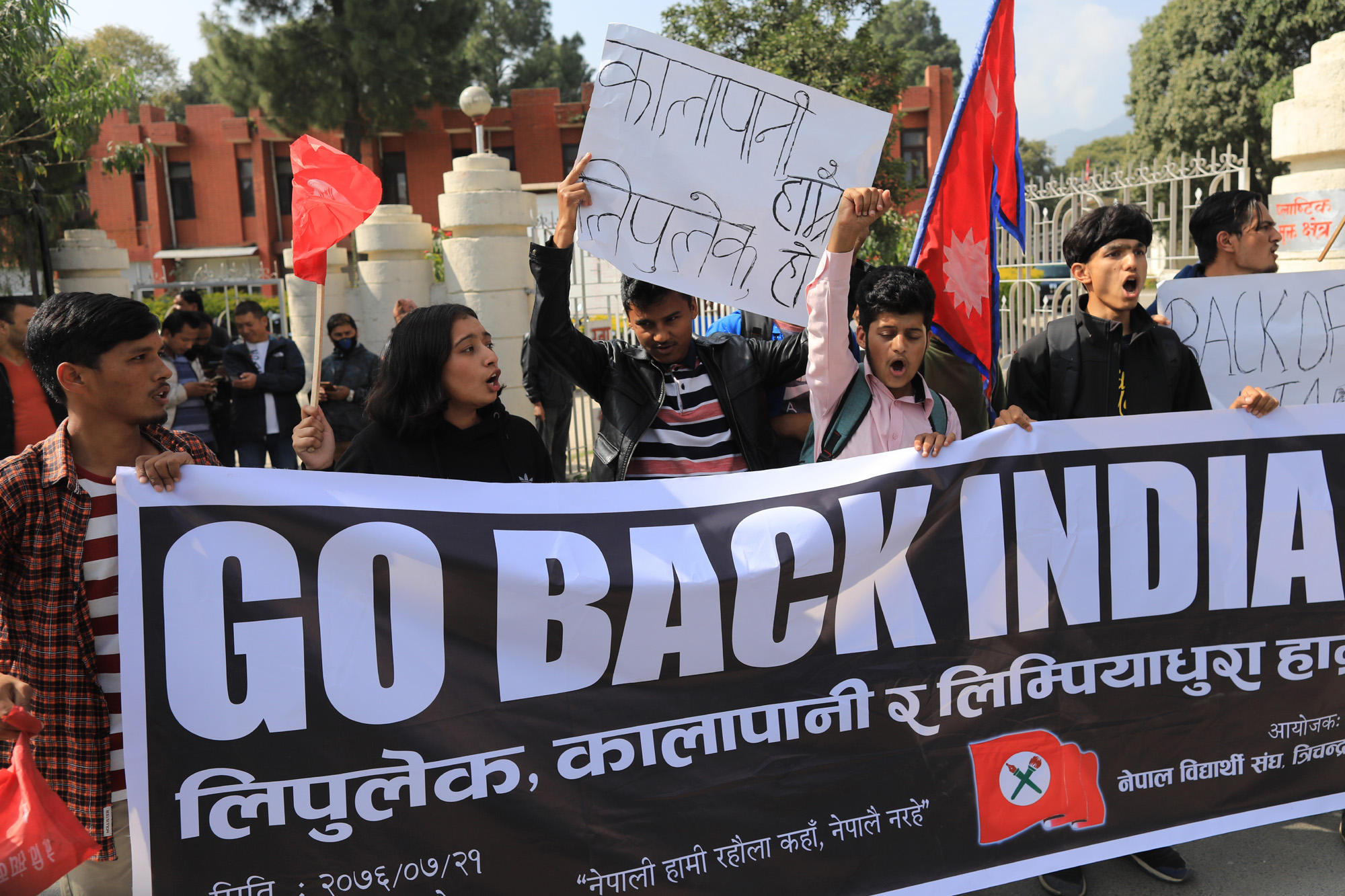
For the first time in recent history all the parties were united after the Indian government released a new map including the Kalapani and Limpiadhura inside the territory of India. The government wrote to the Indian government, objecting to the inclusio of Nepal’s territory within India’s borders, and laying claim to the upper part of the Kali river based on historical proof.
President Bidya Bhandari’s powerplay
President Bidya Devi Bhandari is currently serving her second term as Nepal’s only female head of the state. However, her second inning as President became more controversial this year as she started power play within her previous party, besides seeking more and more amenities and facilities. Her role in manipulating the ruling party leaders surfaced when the co-chairs of the ruling party — KP Sharma Oli and Pushpa Kamal Dahal—finalized their work division at Sheetal Niwas in her presence on November 21.
Samajbadi Party quits Oli government
Samajbadi Party Nepal decided to quit the government on December 24 after Prime Minister Oli rejected its chairman Upendra Yadav’s proposal to form a team of experts to study issues for constitutional amendments during the Cabinet meeting the previous day.




 9.25°C Kathmandu
9.25°C Kathmandu

